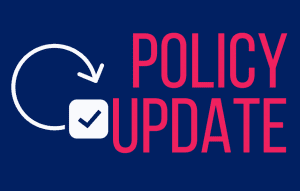QDN e-News Video January 2023 Week 2
Instruction on how to download the video transcript.
Log into YouTube and open the video. Click on More Options (three dots below the video). Select the Open Transcript option from the drop-down menu. Once you click Open Transcript, copy and paste all the lines of text that appear to an editor of your choice to have a complete transcript that you can edit.
Happy New Years to all our members and supporters, we hope you’ve all enjoyed the festive period and are ready to get stuck into 2023. This week you are hearing from Steve Coulter, who is Acting CEO until Michelle comes back from leave on Monday the 16th of January.
Our BIDRC team is delivering two community forums in March in Esk and Beaudesert for people with disability. The one-day workshops will focus on developing inclusive strategies, actions and plans to make sure people with disability are included before, during and after disasters. If you would like to attend a workshop, you’ll need to RSVP. Visit our website for more information.
The 4th of January was World Braille Day and to commemorate we spoke with QDN member Brendon Donohue about the critical role Braille plays in education and employment for people who are blind or have low vision. You can read the story on the QDN website.
Policy Update 15th December 2022 – 7th January 2023
Disability Royal Commission
The public hearing for the Disability Royal Commission was held from 12th - 16th December 2022. The hearing focused on models and pathways for inclusion and the realisation of human rights as well as exploring the progress and implementation of the Australian Disability Strategy.
The hearing included the voices of people with disability, experts, organisations, advocates, government representatives and academics who addressed questions including:
- What makes an inclusive society?
- How can an inclusive society be promoted?
- How can a more inclusive society support the independence of people with disability?
- How can a more inclusive society support the rights of people with disability to live free from violence, abuse, neglect and exploitation?
- What are the barriers to an inclusive society for people with disability?
- What practical and sustainable steps can government, non-government and private sector organisations take to promote a more inclusive society?
Some of the key themes discussed in response to these questions were co-design, consultation and disability leadership, challenging ableist attitudes and behaviours, the power of media, sports and community representation, reforming mainstream systems and services to be more accessible and inclusive, universal design, accessibility and technological innovation and accountability and measuring progress towards inclusion.
Some of the sentiments that were heard regarding proposals for change included:
- Government leadership, including adopting a Bill of Rights to protect people with disability and their rights.
- De-segregation of the education system, workplaces and housing and including people with disability in the community.
- The sentiment of ‘nothing about us without us’ to ensure that people with disability are included in decision making such as planning and development of policies and practices that affect them.
- Altering attitudes and behaviour through more funding for training led by people with disability to raise awareness around disability rights.
- Ensuring accessibility through training, such as training people in the public transport sector including drivers, conductors, pilots, and captions on how to make public transport safer and more accessible.
- Ensuring accessible, safe and quality services including more funding to and investment in Aboriginal and Torres Strait Islander controlled disability services.
- Increasing the strength of systems and processes, including increasing the powers of the Human Rights Commission in ending disability discrimination.
- Having accountability measures around Australia’s progress to make society more inclusive through frameworks such as the Australian Disability Strategy.
Read more here.
Specialist Disability Accommodation Pricing Review
The National Disability Insurance Agency (NDIA) recently began a review of the way the NDIA sets out limits around pricing for Specialist Disability Accommodation (SDA). This is the very first comprehensive review around pricing of the SDA program and looks at assumptions and methodology behind the prices as well as current and future costs of the program.
You can find out more and read the consultation paper here.
Queensland Health and Other Legislation Bill
On 23 December 2022, QDN contributed a submission to Queensland Parliament's Health and Environment Committee for its inquiry into the Health and Other Legislation Amendment Bill. Parts of this bill most relevant to people with disability are:
- Establishing a statutory framework for recording (Mental Health) tribunal proceedings and providing access to records and transcripts.
- Clarifying and restricting access to copies of records or transcriptions of Mental Health Review Tribunal proceedings.
- Changing requirements for adults waiving the right to representation in Mental Health Review Tribunal proceedings (Mental Health Act 2016).
These proposed changes promote transparency, accountability and accuracy in tribunal proceedings and records. QDN provided qualified support.
Culture and Capability Submission
QDN contributed a submission regarding NDIS Culture and Capability on the 16th of December 2022. The main themes of this submission included issues around the following:
- Accessibility and consistency.
- Transparency and accountability.
- Cultural approach towards participants.
- Staff capability.
- System capability.
QDN recommended the following:
- Increase funding for programs such as targeted outreach and services for people needing support to initially apply for the NDIS.
- Review NDIA record-keeping so participants are not asked repeatedly to tell their stories or explain goals and support needs.
- Increase NDIA staff to reduce the numbers of staff with whom each participant much communicate, and waiting times for applications, requests and reviews.
- Shift NDIA culture from a deficit-based medical model to a person-centred and strengths-based rights and social model.
- Increase funding for disability-specific advocacy, legal advice and representation for participants going through the Administrative Appeals Tribunal (AAT).
- Publish detailed data on NDIS AAT matters, including costs to participants and to the NDIA.
- Publish deidentified data on pre-AAT dispute resolution.
- Share information with participants about plan costing and how decisions are made.
- Better define the role and improve responsiveness of Local Area Coordinators (LACs).
- Increase services and staff to regional, rural and remote areas.
- Move away from outdated common-provider housing and support.
There will continue to be more submissions as the NDIS Review continues this year. If you would like to give feedback and/or tell your story regarding any upcoming submissions, please contact QDN on 1300 363 783 and/or email at qdn@qdn.org.au
You can also give feedback directly to the NDIS through this portal.
QDN will keep members updated with upcoming submissions regarding the NDIS review through our website and this e-bulletin.
NDIS Review Panel Submission
In 2022, the Federal Government appointed an Independent Review Panel to conduct a review of the NDIS. The panel is led by former NDIA Chair Bruce Bonyhady and includes former Queensland Anti-discrimination Commissioner Kevin Cocks. The panel will report to the Disability Reform Council by October 2023. QDN made our first submission to the Review Panel in December 2022. We centred a number of QDN member stories and statements covering the following subject areas: Communication with the NDIA; plan goals, funding, and dispute resolution; Specialist Disability Accommodation (SDA) and Supported Independent Living (SIL); Disaster Planning; and Parenting Support. The Review Panel accepts submissions in video, audio or written formats. Anyone may contribute, but the Panel particularly would like to hear from people with disability.
Australian Industry Skills Committee Announcement: Update to Qualifications
The Australian Industry Skills Committee (ASIC) has introduced new versions of the Certificate III or Certificate IV in Disability Support with new entry requirements. Outlines of both courses are available from the national register of vocational education and training here.
The updates to these versions of the Certificates include tools, skills and knowledge around a person-centred approach in residential, home and/or community care settings. People completing these certificates will be able to work within both Aged Care and Disability sectors, but the role for a Personal Care Worker will still require a Certificate III or Certificate IV level.
There will be a transition period for people already enrolled in the current units or due to complete the qualification before the 22nd November 2023.
The option now exists for people studying for the Certificate III in Individual Support (CHC33021) to package units to specialise in Aged Care, Disability or both.
More information can be found here.
New SES Award Wage and structure for employees with disability
In the review of the Supported Employment Services (SES) Award from 2020, the Fair Work Commission has released a final decision to finalise a new wage as well as classification structure for supported employment for employees with disability.
The SES will vary starting from June 2023 and will have a phase-in period of three years, ending on June 30 2026.
These changes will mean that minimum wage rates and annual wage increases for Grades A and B (which apply to employees with disability) will be effective from June 2023 at $4.75 and $9.50 respectively, ending June 2026 at $7.00 and $14.00 respectively.
In the new wage structure, any employee with disability regardless of grade may have their wage rates assessed under the Supported Wage System.
More information can be found here and here.
Queensland Domestic and Family Violence Campaign
The Domestic and Family Violence Help Seeking Campaign 2022-23 has been launched to raise awareness of all forms of domestic violence of all forms of domestic and family violence, highlighting the importance of also recognising non-physical forms of domestic and family violence that centre around maintaining power and control over someone.
This campaign targets adults and younger Queenslanders directly affected by domestic and family violence with the intention of also mobilising close influencers such as family and friends.
Anyone can be involved in this campaign. More about the campaign and how you can support here.
NDS Domestic Violence Resources
National Disability Services recently launched training resources for the disability sector for responding to cases of domestic and family violence. These resources were developed in partnership with the Queensland Office of Women and Violence Prevention. More information can be found here.
Queensland Women's Health Consultation
The Queensland Government has opened up consultations around the Queensland Women’s Health Strategy 2022-27. A consultation paper is available to read those details:
- Issues that women and girls have already raised through various reviews and consultation mechanisms.
- Key statistics about health outcomes for women and girls in Queensland.
- Some potential areas that the strategy could focus on.
You can access the consultation paper here.
You can have your say by completing an online survey here. You can make a written response to the questions in the consultation paper and hard copy submissions are also accepted and can made to:
System Policy Branch, Strategy, Policy and Reform Division
Queensland Health
GPO Box 48, Brisbane QLD 4001
If you would like to provide feedback around the Women’s Health Strategy to QDN, you can contact QDN on 1300 363 783 and/or email at qdn@qdn.org.au.
The consultation closes on Monday 16th January 2023 at 5pm.
More information here.
Right Fit for Risk
The Department of Social Services is going to be reviewing the Right Fit for Risk (RFFR) status of providers in January 2023 as well as assist them to meet any outstanding requirements identified by the Department of Employment and Workplace Relations (DEWR).
DSS is strongly encouraging providers who haven’t achieved RFFR accreditation to contact DEWR at: securitycompliancesupport@dewr.gov.au.
More information can be found here.


